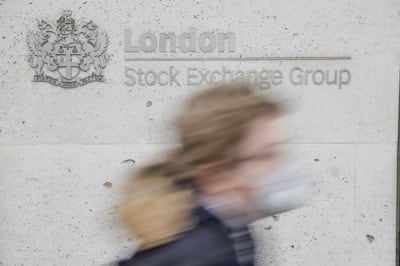British footwear brand Dr Martens plans to float on the London Stock Exchange, as owner Permira Holdings looks to sell a stake in the iconic bootmaker.
The classic fashion brand, which sells more than 11 million pairs of footwear a year, plans to list on the LSE’s main market, according to a filing at the London Stock Exchange, making it one of the first initial public offerings (IPOs) this year.
The company does not plan to raise any money in the IPO, the statement said.
Paul Mason, chairman of Dr Martens, said the proposed IPO “marks an important milestone” for the brand.
“We have made significant investment in the business over the last few years to strengthen the team, our operations and position ourselves for the next exciting stage of development, as a publicly listed company,” he said.
Dr Martens invented its first boot in 1960, an eight-holed 1460 work boot with a yellow welt stitch, grooved sole and black and yellow heel loop – a style it is still renowned for today.
The brand’s endurance came after its designs were adopted by youth culture as a symbol of individual self-expression and rebellious spirit.
The company now has 130 stores across the globe, earning £672 million ($906.9m) in revenue in the year ended March 31, 2020, after adopting a direct-to-retail strategy through physical stores and online.
Since paying €380 million ($462 million) for the bootmaker in 2014, Permira has increased the brand’s global presence, opening new stores and expanding its e-commerce offering.
Despite Covid restrictions causing the closure of some of its shops, the brand increased its online sales, with the focus on selling directly to the consumer accounting for about a fifth of its revenue in March last year.
In its half-year results for the six months ended September 30, Dr Martens posted an 18 per cent year-on-year increase in group revenue to £318.2m, while earnings before interest, taxes, depreciation and amortisation rose 30 per cent to £86.3m.
The company said it sold 700,000 more boots during that six months than in the same period a year earlier, an increase of 14 per cent, despite the lockdowns, as online revenue jumped 74 per cent.
Permira began mulling ways to offload Dr Martens in the middle of 2019, attracting interest from rival private equity firm Carlyle Group, which did not result in an agreement. It is understood Permira revived plans to exit its investment last year.

Strong equity markets are making IPOs an attractive exit option for investors once again. The benchmark FTSE 100 Index posted its best start to a year on record, as investors piled into UK equities following Britain's exit from the European Union. Dr Martens is the third company to consider a London listing in two weeks.
At least 25 per cent of Dr Martens’ share capital will be available for trading upon listing, the company said, as it expects to be eligible for inclusion in the FTSE UK indexes. A further 15 per cent will be available in an over-allotment option.
Dr Martens said its 60-year heritage has seen its “immediately recognisable” boots achieve cult status as a “canvas for rebellious self-expression”, with some of its collections displayed in cultural institutions such as the Victoria and Albert Museum.
The 1460 boot is preserved in the 1461 design and the rest of the brand’s Originals collection, which represented 60 per cent of the group's revenue in its annual results of March last year.
Fans of the brand start young but stay loyal, with 50 per cent of new buyers under 35 and most sticking with the brand throughout their lives.












